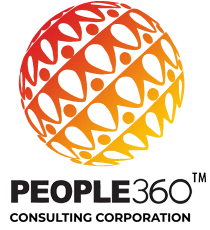Note: With two consecutive storms on Philippine shores, it is unfortunate and inevitable that we would hear news of our fishermen having accidents or getting lost at sea. They may have survived their capsized vessels but holding on for anything floatable for long periods of time until they get rescued is another ordeal. Only this July, nine fishermen were rescued at Ilocos Norte out of the 13 who went missing on the West Philippine Sea just as storm Egay was entering North Luzon, and with still seven others missing off the coast of Bantayan, Cebu as of to date, I have therefore put the spotlight on one of the most dangerous occupations at sea.Fishing is an occupation with a high risk of occupational hazards at the calmest of weather, and fatal at worst. With most of our provinces and municipalities bordering the coast, it is inevitable that fishing would be one of the most common occupations, making Philippines a major fishing country. Yet our country is one of the most storm-hit, too, putting lives at risk on what is already a dangerous job.We may not be aware of it, but our fishermen, whether local or commercial, encounter the following risks and hazards on a daily basis: * Mental and emotional stress, and psychological instability caused by isolation for being at sea for long periods of time, for being away from families, medical assistance and immediate rescue * Exposure to extreme heat or extreme cold * Risk of hearing problems due to elevated noise level from boat engines and/or boat compressors * Accidents and injuries while on board such as slips, trips, falls and being struck by objects * Accidents caused by inferior fishing gear and/or a poorly maintained fishing boat/vessel * Contact with toxins from marine life or the waters itself * Risk of health problems such as sunburn/heat stroke, colds/cough leading to more serious illnesses, and musculoskeletal problems (tendons, limbs, joints, neck and shoulders) arising from vessel motion, heavy lifting, awkward work postures, repetitive tasks and forceful movements * Risk of drowning/death during storms, huge waves and heavy winds
With much to consider about making this job less hazardous than it already is, it is even more unfortunate that only a few would express concern by way of assistance to a livelihood that has sustained the Filipino protein diet for as long as we can remember. Our fishermen have only their families to rely on and warn them in cases of immediate weather changes. But cellphones can only do so much, for at cyclonic weather, cellphones lose signal leaving our fishermen without communication from the mainland. Hopefully in the near future, there would be enough budget for a radio navigation equipment such as the ones Vietnam has provided its fishermen, a Japanese-made transceiver giving them weather updates from radio stations nationwide.For the meantime, though, one great help is, in my opinion, a municipal ordinance prohibiting our fellowmen from fishing unless they have been thoroughly educated on the occupational hazards they face while at sea, and have received first-aid and weather interpretation trainings, life jackets and life buoys. The increased poverty rate among our fishermen will not stop them fishing even at the worst weather, and unless we can give them assistance on such days they cannot go offshore, then efforts to help them save their lives when we can't would be, I believe, greatly appreciated.


